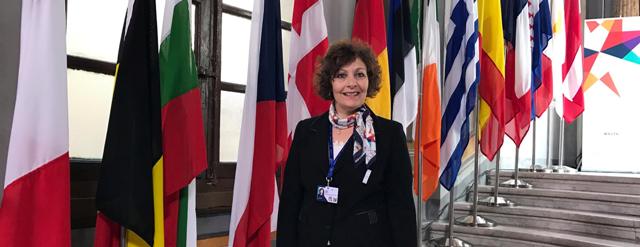
[This is an excerpt from an article appearing in the latest edition of The Round Table: The Commonwealth Journal of International Affairs. Opinion pieces do not reflect the position of the Round Table Board.]
The suave and calm face of Prof. Charmaine Gauci, Superintendent of Public Health in Malta, is now the public face of the fight against Covid-19. Prof. Gauci has been briefing the public daily with news of the number of swabs taken, the number of persons testing positive, and the health status of the current and previously infected.
Perhaps not surprisingly, Malta – like fellow European small island states Cyprus and Iceland – was one of the most recent European countries to identify cases of Covid-19 on its soil (on March 7). Transmission started via those who contracted the disease while abroad (initially in Italy); before moving on to local diffusion. Advice on how to handle the pandemic has been forthcoming from none other than Dr Gauden Galea, the World Health Organisation Chief in Beijing, China (who is Maltese) and who advised an aggressive, ‘Asian’-style response to the threat. All schools were locked down on March 12. All public servants, university lecturers (including this author) and anyone else who can, is now working ‘from home’. All non-essential public gatherings, church functions and sport events are cancelled. Passenger flights in and out of the country are suspended. Construction and manufacturing operations, as well as the sizeable financial services and electronic gaming sectors, remain in full swing. But bars, restaurants, stationers, hairdressers, salons, etc. are closed – and the outcome of missed visits to coiffeurs is now in plain sight. Supermarkets, convenience stores and pharmacies are exempt and have even extended opening times. All businesses are encouraged to consider switching their operations online and to offer delivery services. Those individuals who are caught breaking quarantine are fined 3000 euros for every transgression. Social distancing is encouraged throughout. It has never felt so vital to wash one’s hands, thoroughly and frequently.
The country, one of the world’s most densely populated, is strangely quiet. Traffic has eased. The level of air pollution has already gone down by 50% over the last month. Many public spaces are deserted.
The economy will take a battering: a senior economist has projected a reduction in Malta’s GDP of up to 12% compared to last year. Luckily, consecutive years of budget surpluses have left what Prime Minister Dr Robert Abela – barely 10 weeks in office – has termed a ‘war chest’, now deployed in order to cushion the inevitable blow. A series of active fiscal injections to dampen the shock to the economy have been put into place; and others may yet be announced. Measures to postpone tax payments for at least two months were announced on March 14. A stronger stimulus package, meant to prevent mass redundancies from the private sector, guarantees a state subsidy of 800 euros per month per worker, supplemented with a further subsidy of 400 euros a month from employers, to maintain those private sector workers engaged in heavily impacted sectors – hospitality and tourism, in particular – in employment. As of 30 March, public gatherings of groups of three or more are banned and subject to a fine.
While hunkering down, people are being entrepreneurial and versatile.
Godfrey Baldacchino is the Professor of Sociology at the University of Malta.
Related articles
Singapore and Covid-19: In the forefront of response efforts?
Early elections in Malta – Round Table, 2017



